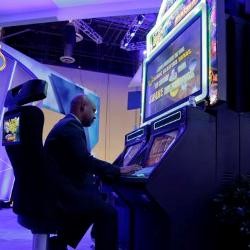Skill-Based Slots To Become A Feature Of Nevada Casinos

Slots are one of the gambling industry’s biggest money spinners, in some cases producing up to 70% of a casino’s revenue stream, but times have changed with younger players moving away from lottery-style games of pure chance to demanding more skill from their gaming experience. Aware of changing dynamics, the Association of Gaming Equipment Manufacturers (AGEM) subsequently devised Senate Bill 9, a piece of legislation seeking approval for slot machines with a skill element, and following its passing in the Nevada State Assembly and a signature by Governor Brian Sandoval, the Silver State has now become the first US jurisdiction to allow skilled-based slot machines. SB 9 passed into law on Thursday, 21st May, after which Sandoval stated:
“In order for our state to sustain its edge in an increasingly competitive gaming industry, we must continue to expand, evolve, and embrace the potentials found in the 21st century. This bill allows gaming manufacturers to use cutting-edge technology to meet the challenges prompted by a younger, more technologically engaged visitor demographic.”
Legalized Variable Payouts
According to gambling law, skill-based gaming requires payouts to be consistent for all players, but now SB 9 will permit manufacturers to add legalized variable payouts, thus enabling slots player to become adept and improve their odds of winning on the innovative new skill-based machines. For example, a slots player who expects to receive around 88% payback on his money, may see that figure rise up to 98% following a bonus round entailing a skill element. Traditionally, slot machines have provided the casino with their highest house edge, which is where the name ‘one-armed bandits’ originated. This new approach, however, is in stark contrast to the traditional image of slot machines as noisy, flashing machines offering quick results and large jackpots to players, but at the same time requiring no real strategy.
Landslide Approval
In April, SB 9 sailed through the Senate by a resounding 20-0 vote, and in May was similarly passed by the Assembly by 41-0, before Governor Sandoval gave the bill final approval by signing it into law. The Association of Gaming Equipment Manufacturers was naturally delighted to receive such overwhelming support for its proposed bill, and following announcement of the its success, AGEM Executive Director Marcus Prater commented:
“The slot floor will not transform overnight, but this will allow our industry to capitalize on radical new gaming concepts and technologies and give AGEM members the ability to unleash a new level of creativity for their casino customers.”
Innovation Applauded By AGA
Nevada is the USA’s biggest gambling market and last year the state generated $11 billion in revenues, of which $6.37 billion was derived from the Las Vegas Strip. Nevada was also the first state to introduce legalized online poker, and together with its new skilled-based slots and other ongoing gaming developments Nevada Governor Brian Sandoval has expressed optimism that Nevada will continue to “remains the global epicenter for gaming innovation and development.”
In the meantime, lending its support to Nevada’s forward-thinking bill is the American Gaming Association (AGA), a national trade group representing the interests of a US gaming industry worth $240 billion annually, and providing employment for more than 1.7 million people. Expressing his appreciation of a new progressive law designed to attract fresh customers to the industry, AGA president Geoff Freeman said:
“We applaud Nevada’s leadership on this bill that will allow for innovation among gaming equipment manufacturers and suppliers and help gaming reach a key customer demographic. We encourage states across the country to follow Nevada’s lead and support innovation that will help casinos thrive in all 40 gaming states.”
Skill Games By End of 2015?
Although no time table has thus been set for the introduction of skill-based slots, it has been speculated that it will take around 6 months before such games are designed, produced, and find their way onto the casino floor. Therefore, one might reasonably expect to see their appearance in Nevada by end of 2015, or beginning of 2016. As to how such machines may work is a matter of speculation, with gaming experts suggesting they could use a traditional slots approach, but also feature interactive bonus games where players can pit their skills against a video game, or even other players via a shared, linked network.










